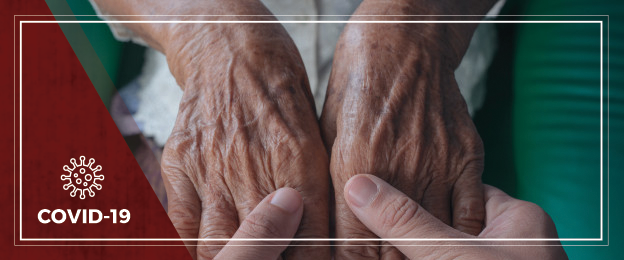I Care a Lot is a recently released Netflix film that follows the fictional account of a nursing home administrator who systematically exploits the elderly for financial gain. There are dramatic scenes of Marla Grayson (the nursing home administrator) with her wall of mugshots of her elderly residents. It shows a dramatic insensitivity that the residents are nothing more than cash cows to the nursing home system.
More chilling is the twisted use of the court process to declare these individuals as incapacitated, as a way to strip them of their rights to make decisions on their own. In essence, they become victims of a system that is supposed to protect them, robbing them of all decision-making power and their assets.
How Real Is Elder Abuse?
Can this happen in real life? The unfortunate answer is, “Yes”.
While the wall of elderly mugshots and a corrupt physician may be overly dramatic, there is an uncomfortable reality of nursing homes denying their residents basic rights and abusing the court guardianship system and the medical assistance process in order to get paid.
According to the
National Council on Aging, up to five million older Americans are abused every year, and the annual loss by victims of financial abuse is estimated to be at least $36.5 billion.
Certainly, there are many well-run and well-meaning nursing homes, but there are also some nursing homes that are neither. For these nursing homes, their operating process is to cut off the resident’s family, deny them access, or grant access to only those who will align with their goal of keeping the resident at the nursing home and facilitate the nursing home’s wish to be paid.
How Can This Kind of Elder Abuse Happen?
A little background explanation is in order here. Let’s look at the typical process that an older adult might go through to end up at a nursing home.
For example, if your mom is over 65 years of age and has more than a 3-night stay at an area hospital, then she will generally be eligible to receive Medicare benefits. These benefits will pay for her hospital stay and then her nursing home rehabilitation stay—for the first 20 days in full, and then typically up to 100 days, with a co-pay expected from days 21–100. (A 100-day period is not guaranteed though.)
The key here is that the decision to move your mom from the hospital to the nursing home for rehabilitation would be made quickly. It is often the discharge planner at the hospital who makes the recommendation for rehabilitation at an area nursing home of their choice. As such, this is a guaranteed, temporary payment source for area nursing homes.
So, let’s say that your mom goes to nursing home rehabilitation for the 100 days that are covered by Medicare. Then, it’s time for your family to meet and make a big decision. What’s next? Should mom come back home, go to an assisted living facility, or stay at a nursing home?
The Nightmare Nursing Home Situation
At this point, a problem could arise between the nursing home and your family. What if your family and your mom’s health care agent want to take her home, but the nursing home recommends that she stay there? That is when the nightmare could begin.
If the nursing home wants to keep your mom, then they might say something like, “Your mother is better off staying here. She gets agitated when your family talks about taking her home.” Thus, the nursing home views your family as “agitators” who are upsetting their resident. Of course, this ignores the fact that your mom might want to come home, and she becomes complacent only when she is not reminded of the option to come home (i.e., she gives up).
Then the nursing home will demand payment. If your mom’s power of attorney holder does not use your mom’s money to pay the nursing home, then the nursing home will file for guardianship. This will strip your right, as your mother’s child, to be her agent.
The nursing home will have the court appoint a random attorney to control your mom’s money, and they will appoint the local Department of Social Services to make health care decisions for your mom. The goal of the random attorney will be to sell all of your mom’s assets and apply for medical assistance (i.e., Medicaid) to continue to pay for her nursing home stay. The goal of the Department of Social Services representative will be to just keep your mom at the nursing home where “she is safe.”
It is not unheard of that the nursing home will cut off access to your mom’s medical information or cut off your contact with mom all together. This issue has become even more pronounced during COVID-19.
It is not unheard of that the nursing home, when it files for guardianship, “conveniently”:
- does not list you and your family members as interested persons
- fails to mention that your mom has a power of attorney holder or health care agent (when they know of both)
- tells you not to worry about your mom’s guardianship hearing and that you don’t have to attend
- blindly files your mom’s medical assistance applications without knowing her assets, in order to have Medicaid pay the nursing home. (Please keep in mind that the medical assistance reimbursement, while it is not as high as the private pay rate, is substantial.)
The nursing home will often characterize this new guardianship filing as an “emergency” guardianship filing, not because there is any emergency with your mom, but because they want to get paid as soon as possible. The nursing home does not want a non-payment situation that could result in your mom’s discharge. (Although, from your family’s perspective, a non-payment situation leading to discharge would be just fine, if you wanted to take your mother home anyways.)
Adult Guardianship Issues in Maryland
In order to have a successful filing for a guardianship petition, in Maryland you need two physician certificates to prove that your mom is unable to make financial or health care decisions on her own.
Here are some questions about guardianship that you might have, along with my responses:
- Is it possible that there could be corrupt physicians gaming the system to fraudulently declare your mom as incapacitated, as shown in I Care a Lot? That I have not seen.
- Is there a lot of grey area when it comes to meeting the guardianship standard? Yes.
- Are there cases when such a certificate is completed by a physician in 5 minutes, based solely on the first certificate? Yes.
- Have there been circumstances of a physician completing certificates for guardianship in full, before even meeting the individuals or never meeting them? Yes (but that is rare, from my point of view).
The more common issue is not whether your mom needs help or not, but whose decision is that to make and what right does the nursing home have to make that decision.
Local Elder Law Firm Expertise
I’ve been in practice for over 19 years, and I don’t think there has been a single incident of a parent saying that they want to go to a nursing home. Nursing home placements are contemplated as a last resort when nothing else works.
The issue in many cases is that the nursing home becomes a third party in a battle over where mom is going to reside in her final days. Oftentimes, mom’s voice becomes irrelevant. But make no mistake, at the heart of this process, the nursing home’s concern is how it’s going to be paid.
The nursing home will frame the context to say that mom is “safer” there than at home. This argument will be used by the nursing home to convince the court that she should continue to stay there. The nursing home will have access to her medical records and the financial resources to hire a physician to articulate this position.
At our elder law firm, we are often involved in fighting these decisions. That means that we fight to get access to your mom’s medical records (which may lead to a separate battle of their release) and fight to maintain your right to make decisions for mom.
If the court appoints a random attorney as guardian of the property, as stated before, their sole role is to sell mom’s assets. If there are jointly held assets, an attempt will be made to sell them. If there are gifts of assets or transfers within the last 5 years, they will come under scrutiny, and depending on if there are assets to fund this random attorney in litigation, there will be an effort to have these gifts undone or otherwise transferred back.
The next thing you know, you are being cast as the “bad guy” for not returning these gifts, and now litigation begins with your mother’s guardian of the property and you to get these assets back. The reason why the guardian of the property may go after these transfers is that these transfers may be barriers for the nursing home to be paid by Medicaid. Gifts within 5 years are penalized transfers and will be barriers for the nursing home to be paid. As such, they will likely be pursued.
At the heart of these transactions is the court process, which will be used to try to keep mom at the nursing home, sell all of her assets, have strangers appointed as her guardian, and have this third-party attorney go after you, if you are involved in transactions that prevent the nursing home from being paid.
This is not the storyline of I Care a Lot. But the core issue of the nursing home being paid and abusing the judicial system to meet their needs is very real. And the nightmare, while not as dramatic as the plot of I Care a Lot … is very real.
We Care a Lot
At the Law Office of Adam J. Roa, we understand how scary and overwhelming these issues can feel for your family. As an experienced elder law firm in Maryland, we are here to guide you and fight for you. Please call us for a consultation at (410) 296-8166 x292.


















